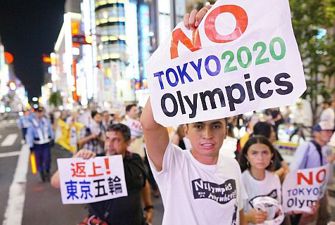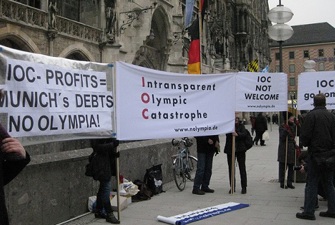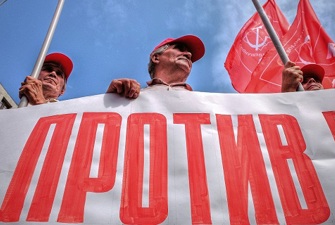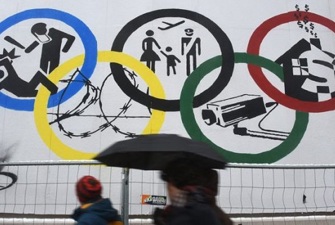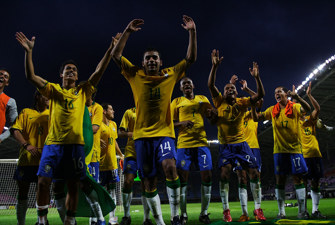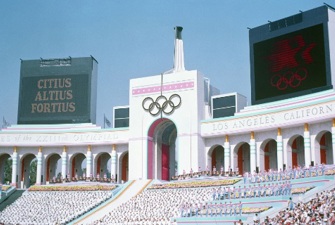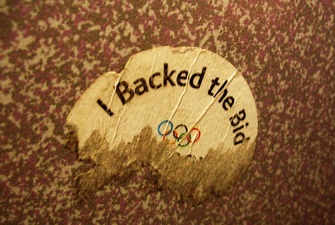Opposition to the Olympics in American cities
American cities have not had much tradition for anti-Olympic movements in spite of a series of Olympic bids in recent years. This might be changing, writes Greg Andranovich and Matthew J. Burbank in this article that analyses the current anti-Olympic movement in Los Angeles, which is based on public awareness and social justice.
In the competition for global capital, American cities often seek to attract attention by hosting mega-events. The Olympic games have been the premier event for cities because of the cachet of the Olympic name and the promise of global media attention. Although there are substantial risks inherent within this mega-event strategy, opposition from residents to bidding for or holding an Olympics has generally been rather minimal in US cities. One notable exception was when Denver, which was given the 1976 winter Olympics in 1970, had to withdraw from its agreement to hold the games after a state constitutional amendment and a city charter amendment prohibiting the state or city from spending public money on the games was passed by voters in 1972. Yet, with the exception of Denver, opposition in other US Olympic cities has typically centered on mitigating the ill effects of particular development projects but without attempting to generate a robust opposition to holding the Olympics.
This dynamic, however, may be changing. Chicago’s bid for the 2016 Olympics led to the creation of an opposition group called No Games Chicago focused primarily on the use of public money for the games and the impact of Olympic development on Chicago neighborhoods and parks. Then public opposition to Boston’s Olympic bid for the 2024 games helped to derail that bid soon after the city won the endorsement of the USOC. Even Los Angeles, the quintessential American Olympic city, is seeing the emergence of an explicitly anti-Olympic opposition mainly on social justice grounds to the city’s plan to host the 2028 Olympics.
Anti-Olympics activism in Los Angeles
In 2015, as Los Angeles was putting together a bid to host the 2024 Olympic games, political activists in the Los Angeles chapter of Democratic Socialists of America (DSA) decided to make opposition to the Olympics a focus of their ongoing social justice organizing and advocacy. The DSA is not a political party but a small group of social activists across the nation advocating for political and economic changes to improve the lives of working people. The local chapter in LA has identified their primary issues as affordable housing, homelessness, and ending police militarization. As local activists discussed these issues, it became clear that there were benefits to linking these issues to a high profile event and using common concerns to mobilize residents and community partners. As a result, NOlympics LA was born.
The visibility of the Olympic bid also heightened the profile of the coalition of community organizations working with NOlympics LA to raise public awareness about the consequences of hosting the Olympics on the cities and communities that make up greater Los Angeles. The DSA’s vision of a more transparent, accountable local democracy guides their efforts. When the IOC awarded LA the 2028 games in August 2017, NOlympics LA saw the opportunity to start a 10-year conversation with Los Angeles leaders, the media, and community members about the future of the city and region (Los Angeles is the largest of 88 cities in Los Angeles county and greater Los Angeles covers 160 cities and parts of four other counties).
As an organization, NOlympics LA is staffed entirely by activists who are volunteers. Their common interest is being part of a movement to make life better in LA. These activists hold other jobs and many are skilled at various forms of media presentation. Volunteers are free to take the lead on organizational initiatives and participate on others as needed. At present, a coalition of about 30 community organizations is involved to varying degrees on the issues of affordable housing, homelessness, and policing, among others. NOlympics LA holds regular meetings at the offices of the LA Community Action Network, in downtown LA on 6th Street, in the heart of LA’s skid row. Since the organization’s activities span the geography of the LA 2028 games, the organization is seeking meeting space in different communities affected by the 2028 games as a means to broaden community access.
Given the 10-year window for mobilizing against the IOC and the LA 2028 games, NOlympics LA is currently planning its short, medium, and long term goals to make best use of limited resources to establish a presence in LA and in the LA-based media for future anti-Olympics activities. As a grassroots organization fighting against big money, NOlympics LA believe they need to get into communities across metro LA to tell their story at every opportunity, countering the LA 2028 bid committee and bid book narratives depicting the city as a blank canvas. Mobilizing through big events What will it take to make life better in LA? The organization's platform states its values. First, insist on homes so that all Angelenos have safe accommodations and equal access to urban life. Second, radically rethink law enforcement so that the most vulnerable in the city are not criminalized or the focus of harsh policing practices. Third, create a more transparent and accountable local democracy where city residents are engaged in public decisions, especially when these decisions have consequences on the everyday lives of those residents and communities. Anti-Olympics activism by NOlympics LA and its coalition partners addresses these values and attempts to learn from and build on the lessons from other bid and host cities including Chicago, London, Rio de Janeiro, Hamburg, and Boston.
In its nearly one and half years of anti-Olympics activism, NOlympics LA has focused on “in real life” protest actions. These actions take place on the streets around LA and at the institutions supporting LA 2028. The actions are often co-sponsored with community partners. The NOlympics LA coalition hosted a public forum “Stop Playing Games” in August 2017 as a culmination of four months of protest activities around the bid. This meeting was billed as the first and only public forum to discuss the LA bid and, although invited, neither the mayor of Los Angeles nor any members of the bid committee attended. The forum featured panel discussions of community issues such as housing and displacement, policing and police militarization, and accountability and oversight.
After the IOC awarded LA the 2028 games, IOC President Thomas Bach came to LA in September 2017, with Mayor Eric Garcetti and bid chair Casey Wasserman, to light the Olympic cauldron at the LA Memorial Coliseum. NOlympics LA met them at the Coliseum chanting “IOC go away, no Olympics in LA” and displaying an anti-Olympics banner before being asked to leave.
In March 2018, the group hosted a protest event called “Disasterpiece Theatre”. This event included a bike tour of skid row in downtown LA called the Ride for Justice and a screening of short documentary films capturing the evictions and displacement of communities in the run up to the Rio de Janeiro 2016 games. NOlympics LA has protested at the mayor’s residence and plans actions at forums such as the American Institute of Architects on designing LA for 2028 and events hosted by the LA84 Foundation (an organization funded initially with the proceeds of the 1984 LA Olympics and dedicated to promoting sports participation in the Los Angeles region).
Other activities include street team actions, such as putting up protest public art, educational outreach through speaking engagements in colleges and universities, establishing student organizations, conducting educational outreach through testimony and protest actions, and gathering information by making requests through the Freedom of Information Act.
Broadening the reach through collaboration and information
In nearby Long Beach, the city council is pushing its 8 by 28 initiative to complete eight large infrastructure projects before the 2028 games including building a new convention center hotel. NOlympics LA is working to bring public awareness to the public spending and decision making by attending council meetings and working on behalf of tenants. All these efforts require information and analysis and the group’s activities included conducting a public opinion survey on hosting the games in LA.
NOlympics LA’s internet presence includes an informative web site presented in English, Spanish, French, and Portuguese organized by both Olympic games and issues of interest. The site is updated regularly and a series of 10 new podcasts addressing anti-Olympics issues, in collaboration with Ground Game LA, are planned for this fall. LA Mayor Garcetti features prominently on the NOlympics site given the group's criticism of his lack of leadership on issues of affordable housing, homelessness, and policing. For the Pyeongchang 2018 winter games, NOlympics LA presented a letter using the hashtag #NoOLympicsAnywhere. In addition, the group is seeking to develop toolkits and signs that can be downloaded from its site.
So far, the effects on mega-event governance are hard to measure, and as NOlympics LA’s Jonny Coleman puts it, “we’re not against sports, just this model.”
Still, in a recent CNN interview IOC President Bach acknowledged the growing influence of a broad-based transnational anti-Olympics movement. Globally, a number of bids have been abandoned and other bids are under pressure from increased local scrutiny. The unusual process of the IOC announcing the Paris 2024 and LA 2028 games at the same time, which was prompted in part by cities withdrawing from Olympic bidding, undoubtedly limited crucial opportunities for LA Olympic opponents to influence public perception during what would have been a more protracted bid process.
The social activists in NOlympics LA participate in local and transnational networks to amplify their voice and actions. Although they lack the corporate sponsorships and government endorsements of Olympic organizers, these activists attempt to overcome limited resources by collaborating with like-minded people and organizations whose goals are to make the city more livable for poor and working class residents. NOlympics LA activists feel they are fighting the good fight by raising awareness about public policy making that privileges capital investments over local residents, sharing practical anti-Olympics information and oppositional techniques with fellow activists (e.g., Calgary), and collaborating with other host city anti-Olympic groups (e.g., No Pyeongchang and No Tokyo groups).
For NOlympics LA’s Jonny Coleman a key question still lingers: “If they think nothing but good can come of the Olympics, why are they afraid of talking with us?”
